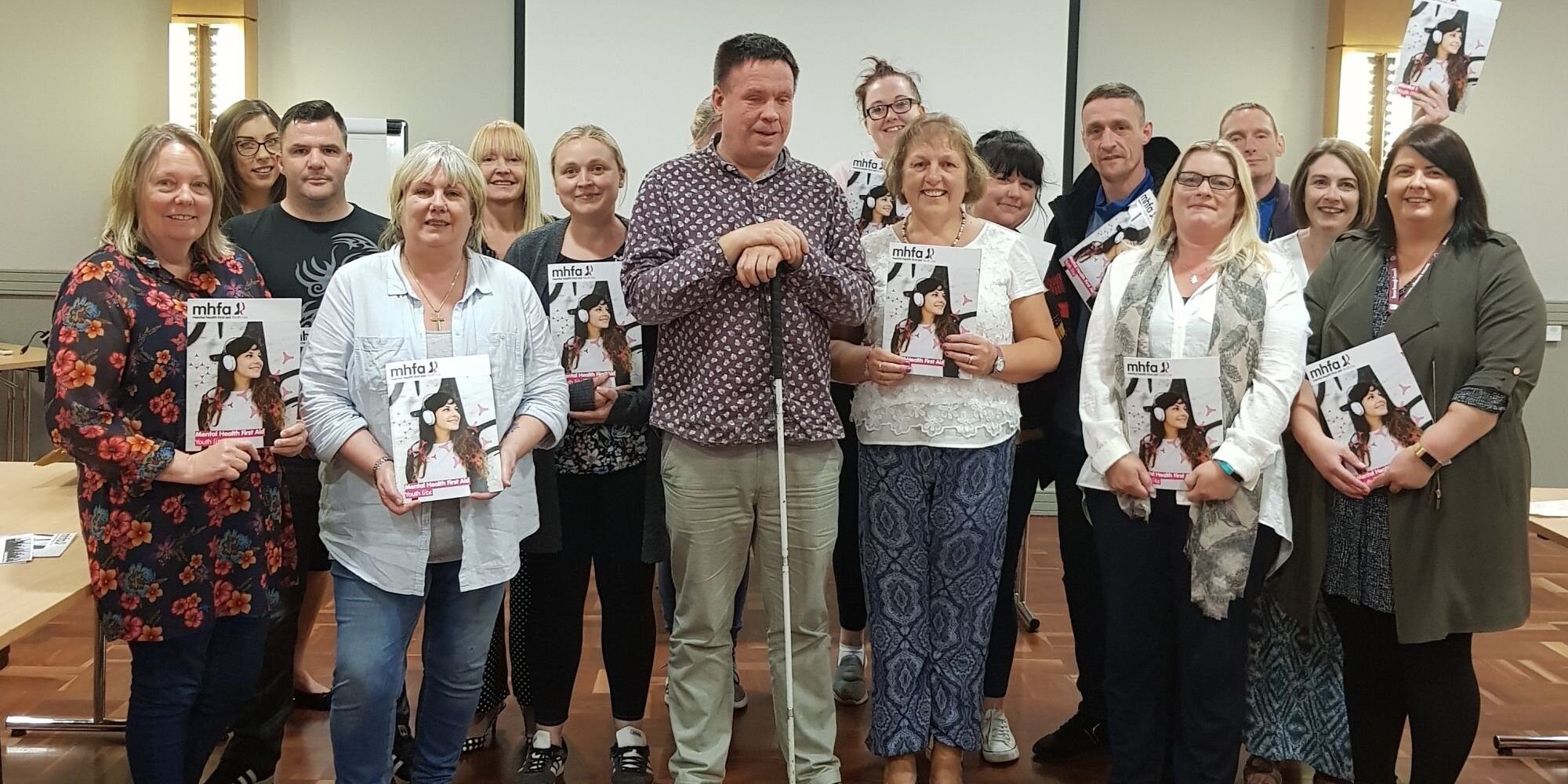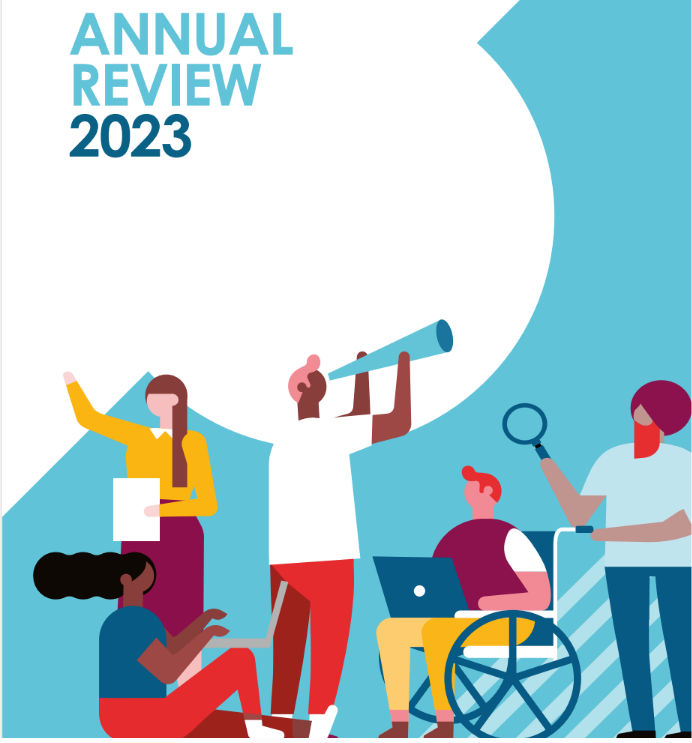Cumbria Youth Alliance (CYA) supports third sector youth organisations across the UK through a high-quality training offer, support and funding. We first awarded CYA a grant as part of our What Works programme in 2021 to fund delivery of its youth employment intervention programme and a learning journey to map out its Theory of Change.
In 2023, we awarded a follow-up grant to help evaluate CYA’s Forging Futures programme robustly and are working with CYA and the Institute for Employment Studies, along with regional partners, to deepen understanding of the impact of CYA’s activities and approaches. Where an intervention leads to meaningful change for young people in rural areas, we can test whether it can be scaled and replicated, with the aim of sharing it with others in the youth employment sector.
We hear from CYA’s CEO Becky Wolstenholme and Youth Ambition Lead Gary Frazer about their work, and the impact Youth Futures Foundation funding has had on youth support.
Tell us about your role as CEO of Cumbria Youth Alliance
Becky: As Chief Executive Officer (CEO), I have aimed to bring a refocused, re-energised sense of purpose and shared commitment to CYA, its community of partners and the talented young people we are working to support.
Over the past three years as CEO, we have reprofiled our operational focus. When I first joined, we were largely engaged in delivery activity in the community. As a membership organisation serving Cumbria’s vast and diverse community of youth programme providers, we really needed to be doing more at a strategic level to inspire, organise and empower the community of frontline organisations we represent. We want to be maximising the impact and benefit of their work for Cumbria’s young people.
While it has not been an easy journey to get to where we are, I think it would be fair to say that the CYA has completely transformed its programme of work. At present, most of what we do is provide high-level, strategic support for our partners working with young people, which is a considerable shift from where we started three years ago.
One of the things I am most proud of is seeing CYA mature as an organisation and to see this being translated into effective and meaningful support for young people across the county.
While our main focus is now strategic partnership working, we are still engaged with a limited amount of direct programme work in the community, which we will continue to do. I feel strongly that that has a crucial role in linking CYA to the cultural reality and lived experience of those we are here to help.
It’s rewarding to be able to do that work as well as our role as a membership alliance.
Can you talk about your work with the voluntary sector in Cumbria?
Gary: We have a reference group with representation from across the voluntary sector for our area. This group of people, which includes young people themselves, are important for maintaining strong links with our partners in the voluntary sector. Over the past three years, Becky has done a lot of relationship building with each stakeholder in this group. The outcome of this has been to refresh the group’s terms of reference, and this has sharpened its collective energy and sense of mission.
A second outcome of this has been to increase the profile of CYA across the area, both with our third sector partners and beyond that. We are now seen as the leadership body for the youth employment sector in Cumbria. Having this level of brand recognition means that we are invited by others to be involved at an early stage to discussion new initiatives and programmes. A recent example of this was when we were invited by the Department for Work and Pensions to join them as working partners in their first meeting with an industry partner to discuss recruiting young talent during the set up phase of their new operation in Barrow.
How has your partnership with Youth Futures Foundation helped with these achievements?
Becky: We could not have done any of this without the Youth Futures funding. What the grant does is allow you to stabilise and set clear objectives for your organisation, instead of using your capacity for generating a funding stream. With the funding behind us, we have been able to focus on stakeholder and community building. One of the rewarding aspects of this for me is to watch the culture shift that is now taking place across the sector.
Gary: The funding from Youth Futures has helped us to drive forward our relationship with the Department for Work and Pensions, and ensure we are supporting young people in the right way as early as possible. As anyone working in this field knows, making contact with a young person as soon as they need support makes such a crucial difference. It helps to avoid the risk of them slipping into economic inactivity and then into a cycle of social anxiety and loss of confidence. The earlier we can support a young person, the better chance we have of averting that so that they can get themselves back on track. Our close working ties with the Department of Work and Pensions (DWP) has made us much more visible to young people and to the whole network of front line services working with them.
What specific benefits are you seeing from the strengthening of your partnership with government?
Becky: We now have an agreement with DWP to have a presence in all the Job Centres and Youth Hubs around Cumbria. Since doing this, we have started to see an increase in referrals for and from young people. This is also helping us to maintain our profile, so that industry and government continue to approach us about fulfilling their employment requirements for future projects.
How do you measure whether the interventions that you commission or deliver are actually having an impact on the ground?
Becky: I think what was key to the success of this project was that it was co-produced with young people. Young people advised us about the kinds of data we needed to track that would produce insight about the effectiveness of our programmes.
We realised that we needed a system to capture, collate and analyse the work we do at each stage. But rather than buy an expensive system from the market, which wasn’t tailored for our needs, we chose to develop one, using our Youth Futures funding. The evidence from this tool is allowing us to see whether we are achieving good outcomes for young people, and to be able to demonstrate the value of our work to our funders.
Part of our funding was used to work with a consultancy to design and develop this tool, and to ensure it was able to capture the quantitative and qualitative, socio-emotional data that we need.
This tool is now a free resource, and we are finding that other organisations in other sectors are using it – it’s proving much more popular than we thought it would be. This is exactly the kind of system-wide, co-produced resource that funding from Youth Futures makes possible.
Tell us more abut CYA’s evaluation methodology
Gary: A key development for us was bringing in a data analyst from our business partner to help us. That helped to create a deeper level of understanding about the nature of our business, and the type of data we needed to capture and analyse.
Our methodology is grounded in our Theory of Change and it involves taking a rounded view of the young person. We look at things like the their work and career interests, what barriers they are facing, what type of one to one or group support they will need, and the specific outcomes they want from the programme. During the initial set up phase, we establish a set of socio-emotional and quantitative questions to help us to identify the young person’s needs and map their journey.
These questions form a baseline that we use to review progress at agreed points. We can then see what is working, or whether the scope of the intervention needs to be refined, in terms of adding or changing the type or level of support.
Having this data allows us to see the distance that each young person travels from the start of the intervention through to its outcome. As the data set grows, we hope it will offer us insight into patterns and themes about the quality of our interventions, giving us a mechanism for our own ongoing learning and evaluation.
This is another example of the kind of system-level thinking that is being enabled by having a sound funding base in place.
What insights would you offer to other organisations coming into this field?
Becky: Be brave. Stay true to your principles. Look, we could have easily stuck to chasing funding but that is not our primary purpose. We are here to achieve effective support for young people to get themselves into work. That is our purpose. It requires a strategic, interlinked collaboration with our partners. So, your starting point needs to be investing in relationships with key partners and recruiting high quality individuals to form your core team. That gives your organisation a sustainable foundation.
Gary: It’s also important to be clear about your offer and know about other organisations in your area. Look around and understand what is already out there, so you limit duplication. Stick to what you are going to do and commit to learning from your work as you go as a principle, right from the start. As an organisation, CYA makes a point of never being afraid to admit when things are not going right. That has helped us to make sure that we are spending our energy on activities that have as much positive impact as possible on supporting young people’s pathway into work. Thank you!


